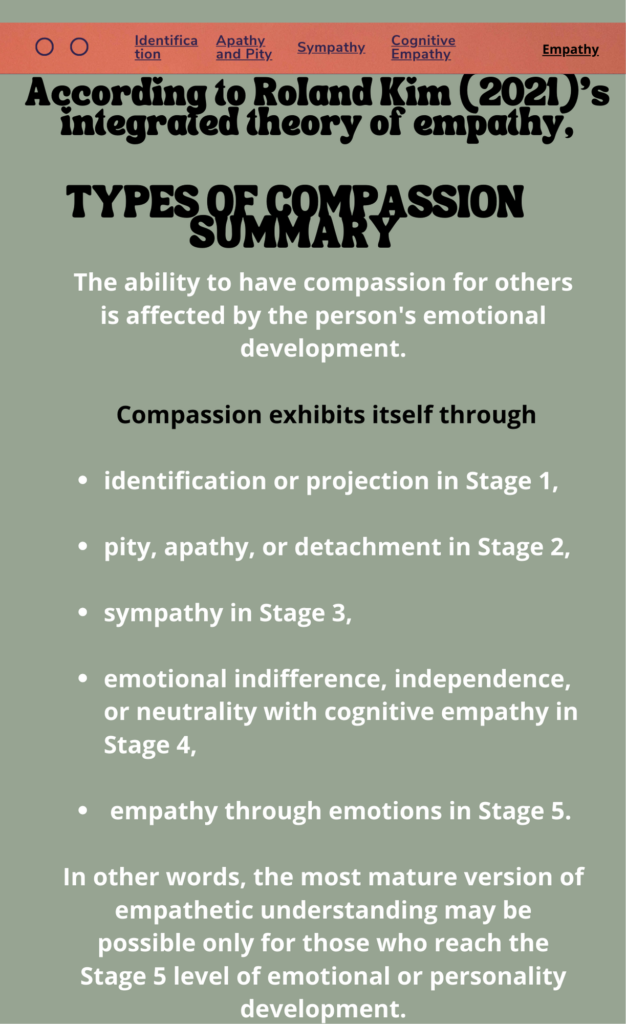What Mature Empathy Is Not: Debunking Common Misconceptions
Empathy is often regarded as one of the most valuable qualities a person can possess. It plays a crucial role in nurturing and healing relationships, bridging gaps, and fostering understanding among individuals. However, it’s essential to clarify what empathy is not to truly comprehend this complex and often misunderstood human trait.
In a previous blog post, we explored the significance of empathy, particularly mature empathy, which represents the highest level of compassion. It involves understanding others’ emotions from their perspectives, even in challenging situations, such as those involving victims, perpetrators, or individuals struggling with mental health issues like depression and suicidality.
In this article, we will delve deeper into what mature empathy is not, shedding light on common misconceptions and clarifying the distinctions between genuine empathy and other emotions or actions that may resemble it but fall short.
Empathy is Not Merely Identifying Emotions
One common misconception about empathy is that it’s merely the act of identifying or recognizing someone else’s emotions. While recognizing emotions is a part of empathy, it is just the beginning. Empathy goes beyond acknowledging feelings; it involves understanding them deeply and from the other person’s perspective. It requires putting oneself in another’s shoes and trying to comprehend the emotional experience from their point of view.
For example, if a friend is going through a tough time, empathy is not just saying, “I see that you’re sad.” True empathy involves asking questions, listening actively, and making an effort to understand why your friend is feeling the way they do.
Empathy is Not About Trying to Please
Another misconception is that empathy involves trying to please or appease someone who is going through a difficult situation. While it’s natural to want to comfort and support those we care about, true empathy is not about showering them with gifts or material things in an attempt to make them feel better.
For instance, if a colleague is struggling with a personal issue, empathy is not giving them an expensive gift to cheer them up. Instead, it involves offering your presence, a listening ear, and emotional support.
Empathy is Not Giving Unsolicited Advice
Empathy is often mistaken for giving well-intended advice or lecturing out of concern. While providing guidance can be helpful in certain situations, true empathy does not involve offering unsolicited advice without first understanding the person’s feelings and perspective.
Imagine a family member is facing a challenging decision. Empathy is not immediately offering a list of reasons why they should choose a particular option. Instead, it involves asking questions to understand their thoughts and feelings before providing advice, if they seek it.
Empathy is Not Sympathy
Empathy and sympathy are often used interchangeably, but they are distinct emotions. Sympathy involves feeling for someone who is in a similar situation or experiencing pain. Empathy, on the other hand, means understanding someone else’s emotions from their perspective, regardless of whether you’ve been in a similar situation or not.
For example, if a coworker loses a loved one, empathy is not saying, “I know how you feel; I lost someone close to me too.” Empathy is about acknowledging their grief and trying to understand the unique emotions they are going through, even if you haven’t experienced the same loss.
Empathy is Not Indifference
Lastly, empathy is not indifference. It does not mean disregarding someone’s right to experience their emotions, even if those emotions involve danger, misery, depression, loneliness, or lack of safety and security. Empathy involves respecting a person’s feelings and experiences while offering support and understanding.
For instance, if a friend decides to pursue a risky adventure, empathy is not discouraging them by highlighting all the potential dangers. It involves respecting their choice while expressing concern and offering assistance if needed.
Conclusion
Empathy is a complex and multifaceted emotion that plays a pivotal role in human relationships. Understanding what empathy is not can be just as crucial as understanding what it is. By dispelling common misconceptions and clarifying the true nature of empathy, we can cultivate more meaningful and compassionate connections with others, fostering a deeper understanding of their experiences and emotions.

empathyislove.com